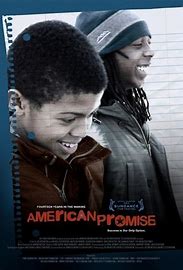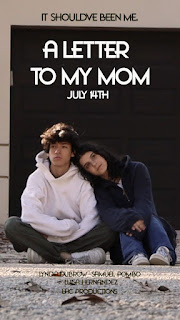Ok ok,
I know that y'all missed me but let's get real: I have a portfolio project due at the end of the school year. One of the four options I have is to make a documentary so, naturally, we learned about documentaries in class. Collectively we watched American Promise, Exit Through the Gift Shop, Abstract docuseries, and a couple of op docs form the New York Times. Each one taught me something different about the process and general techniques used in documentaries.
This documentary taught me the patience you have to have in documentaries. One would assume that in at most a year, you are done. You are free! ...but no. You got to do the planning, find the subjects, get the footage, do the interviews, get outside perspective from other lesser subjects, get footage again, edit a bit, wait until the opportune time to get another interview, get even more footage, edit again, scrap an idea, work with an idea, adapt... It's a lot. For example, in this doc, the directors decided to make it where the doc follows the life of two boys as they progress through Dalton school in 13 years. What they didn't predict was that one of them would be kicked out and they had to adapt to it. Basically, what I'm saying is that docs are hard, but most should be in the pre-planning. I something changes, you've got to adapt.
Exit Through the Gift Shop
This documentary taught me the power of narrative in a piece. That the directors are always going to be a little biased and it will definitely show in their work. The beginning portion was started and created by Thierry Guetta and it shows him as almost the "hero" of the story on how he is always interested in the art and filming people who do it. Then when Bansky shows up, everything starts leaning towards his successes and starts putting Guetta in a more negative, foolish light. Especially in the point in time where Banksy takes over the editing. Even though the footage is still filmed by Guetta, you can see the shift in narrative. The power of structure and bias is very apparent in this piece.
Abstract docuseries








No comments:
Post a Comment